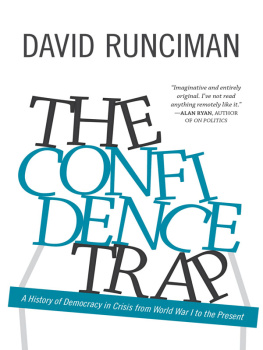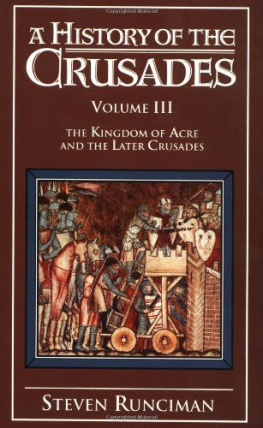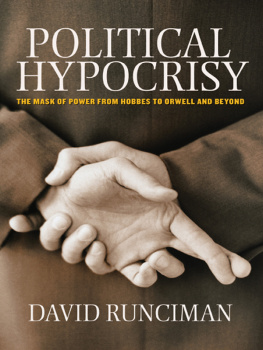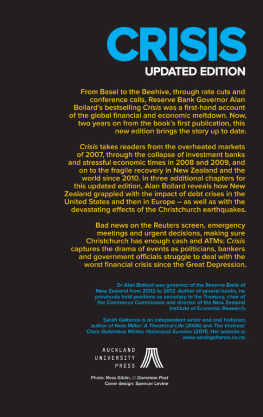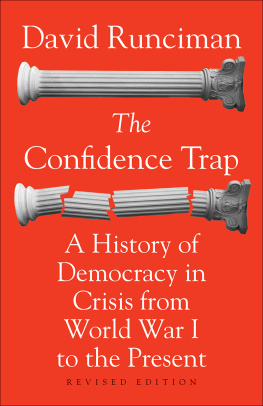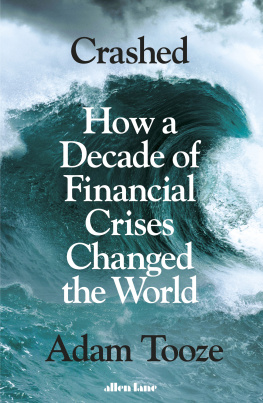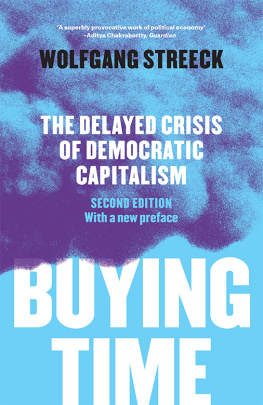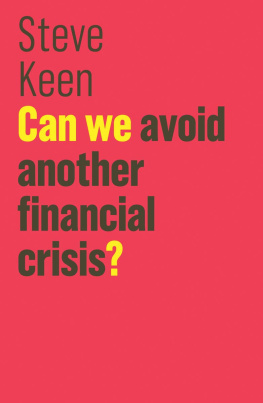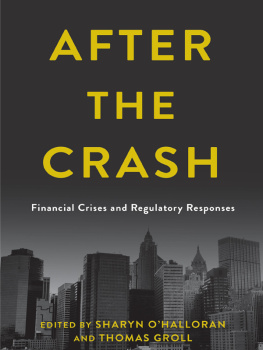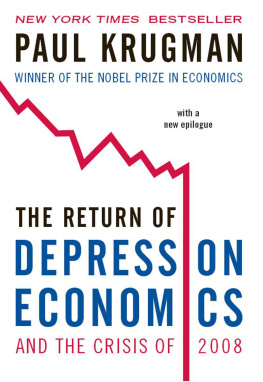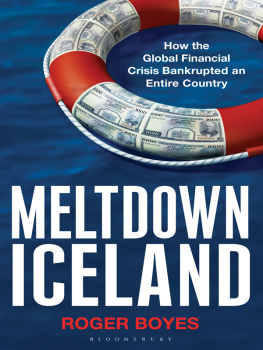
The Confidence Trap
THE CONFIDENCE TRAP
A History of Democracy in Crisis from World War I to the Present
David Runciman
PRINCETON UNIVERSITY PRESS
PRINCETON AND OXFORD
Copyright 2013 by Princeton University Press
Published by Princeton University Press, 41 William Street, Princeton, New Jersey 08540
In the United Kingdom: Princeton University Press, 6 Oxford Street, Woodstock, Oxfordshire OX20 1TW
press.princeton.edu
All Rights Reserved
Library of Congress Cataloging-in-Publication Data
Runciman, David.
The Confidence Trap : a History of Democracy in Crisis from World War I to the Present / David Runciman.
pages cm
Summary: Why do democracies keep lurching from success to failure? The current financial crisis is just the latest example of how things continue to go wrong, just when it looked like they were going right. In this wide-ranging, original, and compelling book, David Runciman tells the story of modern democracy through the history of moments of crisis, from the First World War to the economic crash of 2008. A global history with a special focus on the United States, The Confidence Trap examines how democracy survived threats ranging from the Great Depression to the Cuban missile crisis, and from Watergate to the collapse of Lehman Brothers. It also looks at the confusion and uncertainty created by unexpected victories, from the defeat of German autocracy in 1918 to the defeat of communism in 1989. Throughout, the book pays close attention to the politicians and thinkers who grappled with these crises: from Woodrow Wilson, Nehru, and Adenauer to Fukuyama and Obama. The Confidence Trap shows that democracies are good at recovering from emergencies but bad at avoiding them. The lesson democracies tend to learn from their mistakes is that they can survive them--and that no crisis is as bad as it seems. Breeding complacency rather than wisdom, crises lead to the dangerous belief that democracies can muddle through anything--a confidence trap that may lead to a crisis that is just too big to escape, if it hasnt already. The most serious challenges confronting democracy today are debt, the war on terror, the rise of China, and climate change. If democracy is to survive them, it must figure out a way to break the confidence trap Provided by publisher.
Includes bibliographical references and index.
ISBN 978-0-691-14868-7 (hardback)
1. DemocracyHistory20th century. 2. DemocracyHistory21st century.
3. World politics20th century. 4. World politics21st century. I. Title.
JC421.R86 2013
321.8dc23
2013019899
British Library Cataloging-in-Publication Data is available
This book has been composed in Chaparral
Printed on acid-free paper.
Printed in the United States of America
10987654321
For Bee
The trouble with political life is that it
is either too absorbing or too tame.
ALBERT HIRSCHMAN, ON DISAPPOINTMENT (1982)
Try again. Fail again. Fail better.
SAMUEL BECKETT, WORSTWARD HO! (1983)
CONTENTS
PREFACE
TWO STORIES CAN BE TOLD ABOUT DEMOCRACY OVER THE last hundred years. One is the obvious success story. Democracies have shown that they win wars, recover from economic crises, overcome environmental challenges, and consistently outperform and outlast their rivals. There were very few democracies at the start of the twentieth century (on some counts, requiring an open franchise, there were none). Now there are plenty (Freedom House currently puts the number at around 120). Of course, the progress of democracy over this period has not been entirely smooth or consistent. It has been haphazard and episodic: in Samuel Huntingtons famous image, it has come in waves. Nevertheless, whatever the intermediate ups and downs, there can be little doubt that democracy was the overall winner during the past century, to the point where it was possible to argue, as Francis Fukuyama did more than two decades ago, that liberal democracy is the only plausible answer to the fundamental problems of human history.
But alongside this success story there is another to be told about democracy: one of pessimism and fear. No matter how successful in practice and over time, democracies have always been full of people worried that things are about to go wrong, that the system is in crisis and its rivals are waiting to pounce. The onward march of democracy has been accompanied by a constant drumbeat of intellectual anxiety. Maybe all the good news is just too good to be true. Maybe democracys run of luck is about to come to an end. The political history of democracy is a success story. But the intellectual history of democracy is very hard to reconcile with this. It is preoccupied with the prospect of failure.
You can see both these views of democracy at work in the world today. There is still plenty of optimism around. It is not hard to fit the overthrow of autocratic governments in Tunisia, Egypt, and Libya and the popular appetite for reform across the region into an end of history narrative. It may take time, and it may not be pretty, but democracy is spreading to those areas of the world that had previously seemed resistant to it. This is not just true of the Arab world. Democratic government is stabilizing in much of Latin America. It is taking root in parts of sub-Saharan Africa. There are even glimmers of progress in previously frozen regimes, such as Burma.
On the other hand, there is plenty of gloom about. For every success, it is possible to identify equivalent setbacks: in Russia, in Zimbabwe, in Thailand.for them, the last decade has not. Many of the leading democracies have been fighting long and difficult wars (in Iraq and Afghanistan) that they do not seem to know how to win or how to exit successfully. Most Western democracies are heavily in debt, thanks in part to these wars but also to a global financial crisis they did much to bring about. In Europe, some of them have come close to default, and there are fears that the United States may be heading the same way. All democracies have found it very difficult to know what, if anything, to do about climate change. And they have been watching with a mixture of resignation and fear the seemingly inexorable rise of China. These are the four fundamental challenges a system of government can face: war, public finance, environmental threat, and the existence of a plausible competitor. It is not clear that the established democracies are doing well in meeting any of them.
So there is a puzzle. History indicates that democracies can cope with whatever is thrown at them. Yet here are the most successful democracies struggling to cope. Things look bad, but the historical record of democracy suggests that nothing is as bad as it seems. This is why we find it so hard to know how seriously to take the current crisis of democracy. We cant be sure whether it is really a crisis at all. Are we in trouble or not? This book is about how we should think about this question. I believe we are in trouble, but not for the reasons usually given. The real problem is that democracy is trapped by the nature of its own success.
Inevitably, as so often in politics, there is a temptation to take sides when thinking about the prospects for democracy. We are faced with what look like either/or questions. Should we heed the good news or the bad news? Was Fukuyama right or wrong? Is America finished, or are the doomsayers going to be proved wrong this time as they have every time in the past? Is the real story the enthusiasm for democracy in the places that havent had it before, or the seeming exhaustion of democracy in the places that have had it for a while? If you are an optimist, the long-term benefits of democracy trump the short-term hiccups. But if you are a pessimist, the problems we see around us give the lie to the long-term success story. A lot depends on what counts as long term. A bad ten years is just a blip in the face of a good hundred years. But a good hundred years is just a blip in the face of two thousand yearsfrom ancient Greece to the mid-nineteenth centuryin which democracy was written off as a failure. The critics of democracy over that period always said that in the end the democratic taste for debt and instant gratification, along with a penchant for fighting stupid and impulsive wars, would be its undoing. How can we be sure they werent right?
Next page
